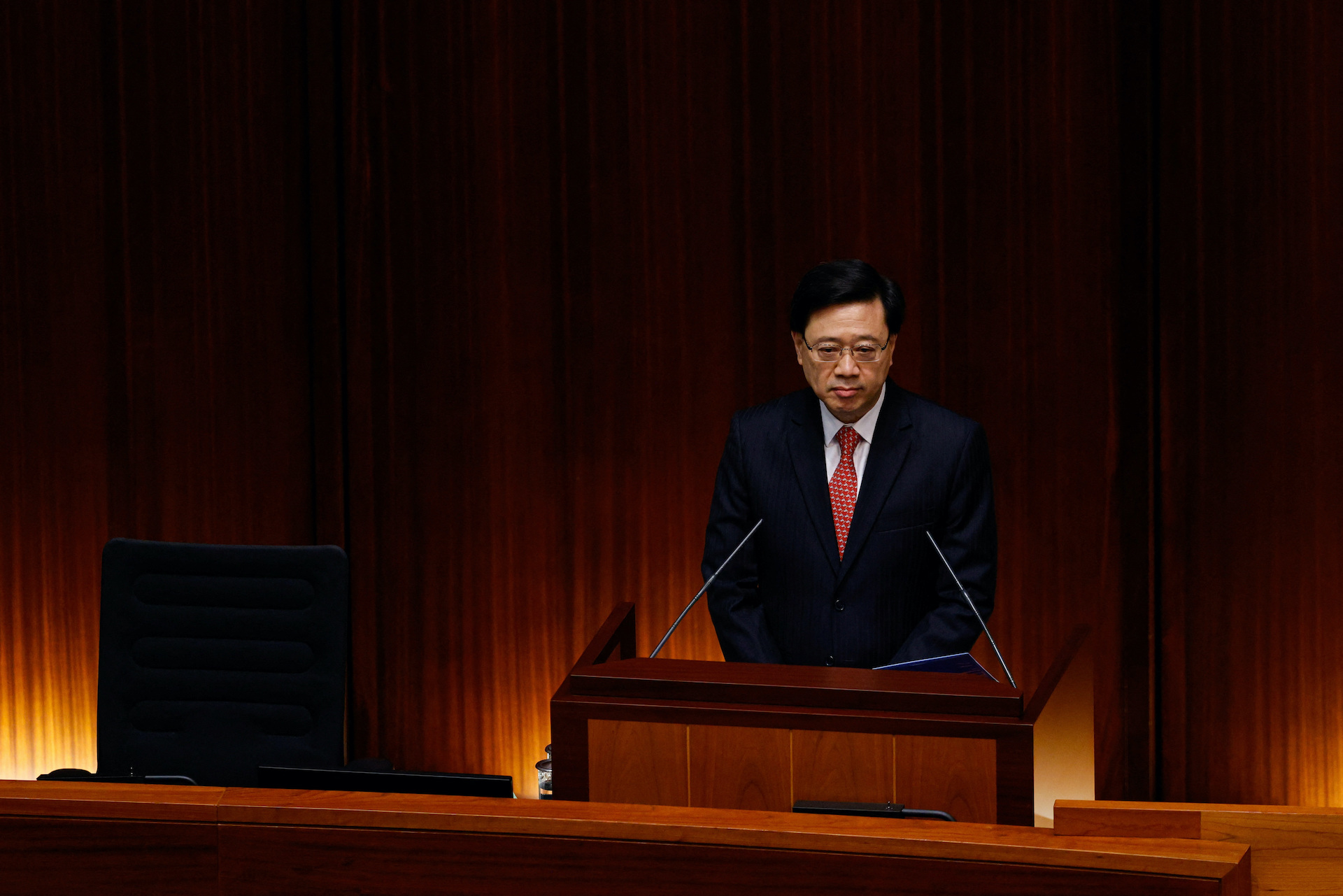Chief Executive John Lee’s speech fails to stir up COVID-hit Hong Kong
In his first policy address, Hong Kong leader John Lee unveiled a list of strategies to try to rebuild the city’s reputation as Asia’s finance hub. But he did not mention an ease to COVID restrictions.

Hong Kong leader John Lee Ka-chiu (李家超 Lǐ Jiāchāo) delivered his first policy address since coming into his position at the city’s Legislative Council today, in which he mapped out his government’s plans for the next five years, but made little mention of the city’s COVID policies.
In a speech that lasted over two-and-a-half hours, Lee began by echoing Chinese leader Xí Jìnpíng’s 习近平 praise of the city’s transition from “chaos to order.” He also unveiled a slew of strategies aimed at rejuvenating the finance hub’s reputation, which has been marred in recent years by strict pandemic restrictions and political unrest. (Read his speech, broken up in parts 1–10, here.)
These were Lee’s major talking points:
- “Trawl the world for talents” with visas and tax cuts: Hong Kong will create a visa program for people who earn at least HK$2.5 million ($318,480) a year, while recent graduates of the world’s top 100 universities will be eligible for two-year work visas. The city will also refund some property taxes for non-permanent residents, once they live in the city for seven years and become eligible for permanent residency.
- Attract big businesses: HK$30 billion ($3.8 billion) will be set aside to establish a “Co-Investment Fund,” aimed at attracting companies to invest and set up operations in Hong Kong. Lee also said a fund would be set up for strategic enterprises, such as those focused on healthtech, artificial intelligence, data science, fintech, and advanced manufacturing, to relocate to Hong Kong.
- More public housing: Lee also vowed to increase construction of public housing by about 50% in the next five years, compared with the previous five-year period. He also pledged to cut waiting times for prospective tenants.
- Integration with the mainland: Closer economic, technological, and cultural ties with the Greater Bay Area will be fostered, particularly through the Hong Kong-Shenzhen Innovation and Technology Park.
China news, weekly.
Sign up for The China Project’s weekly newsletter, our free roundup of the most important China stories.
But Lee’s speech failed to woo markets: While Lee acknowledged that 140,000 people had left the city’s local workforce over the last two years, many foreign firms and investors were disappointed that there was no mention of any plans to further loosen the COVID-zero restrictions that have driven residents to leave the city.
- “We are making our best efforts to discuss with the mainland to strive for resuming normal cross‑boundary travel in a gradual and orderly manner, without posing additional epidemic risks to the mainland,” Lee said.
- Shortly after the policy address, the Hang Seng Index in Hong Kong fell around 2.38% to 16,511.28, while the Hang Seng Tech Index slipped 4.19%.
- The Hong Kong Stock Exchange also reported a 30% decline in profits, with net income for three months ending in September slumping to HK$2.26 billion ($288 million) from HK$3.25 billion a year earlier, according to a statement on Wednesday per Bloomberg.
Meanwhile, Hong Kong is sniffing out billionaires in the Middle East, Europe, Southeast Asia, and mainland China by setting up a series of road shows to lure family offices back to the finance hub amid heavy competition from Singapore, Caixin reports.
- Hong Kong’s financial secretary, Paul Chan (陳茂波 Chén Màobō), defended the city’s reputation as an Asian hub, after the Global Financial Centres Index published a report showing that Hong Kong had lost its third-place spot to Singapore.
- Hong Kong’s midyear population made the steepest year-on-year drop on record of 1.6% to 7.29 million, per Reuters, whereas rival commerce hub Singapore notched up a 3.4% increase over the same period.






